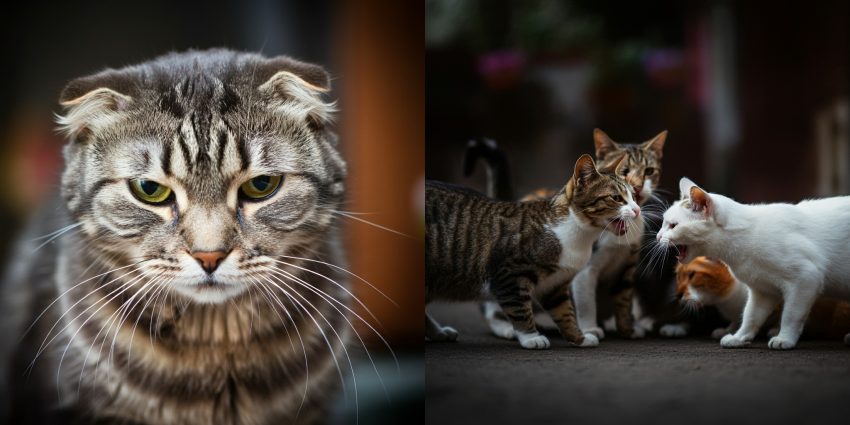Convenient Kitty Sidekicks
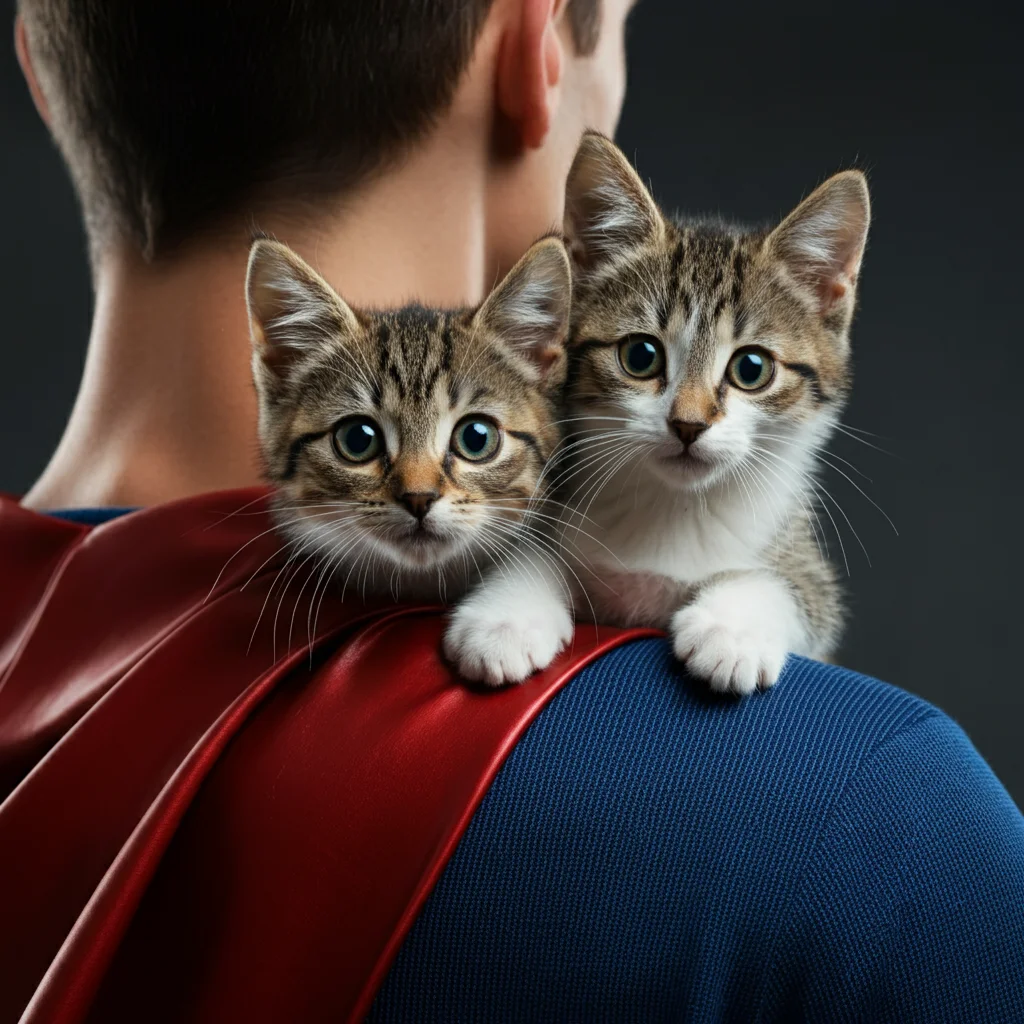
The size spectrum of domestic cat breeds is noteworthy, with the Maine Coon being remarkably large. Meanwhile, breeds such as the Singapura, Munchkin, and Cornish Rex are exceptionally small, boasting petite proportions, with weights between 4 to 8 pounds.
Take, for instance, this petite ball of fur, measuring only twice the size of a sauce packet. Such miniature cats are tailor-made for individuals who relish snuggling with a diminutive companion. Their compact size frequently contrasts with expansive personalities.
Why Are Cats Inclined to Sleep in Sinks?
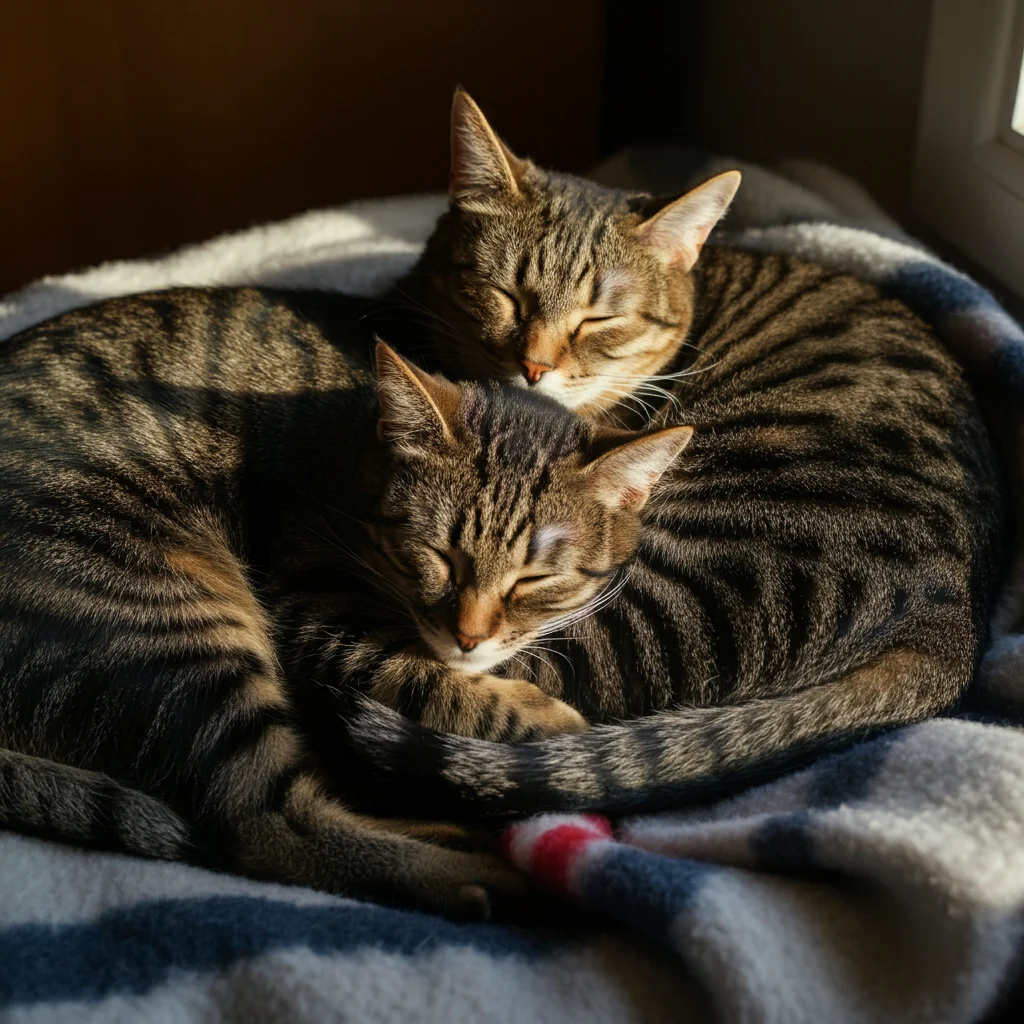
The propensity of domestic cats to sleep in bathroom sinks defies easy explanation, yet several theories exist to account for their affinity for this particular location.
The preference of cats for sinks can be attributed to the cool, smooth surface and its shape, which offers a sense of security. The peaceful environment of bathrooms and the sink’s elevated location may also contribute to its appeal. While this behavior is generally harmless, consulting a veterinarian is advisable if your cat persistently seeks water to rule out any underlying medical conditions.
Utilizing a Gravity-Activated Feeder
A gravity feeder offers your cat a continuous, hassle-free supply of food, similar to an always-available buffet. This feeding method eliminates the need for rigid scheduling, ensuring the bowl remains full at all times. Nonetheless, it is crucial to supervise your cat’s eating habits to prevent excessive consumption, as they dictate their own portions with this apparatus.
Why Cats Favor a Curled Up Sleeping Position?
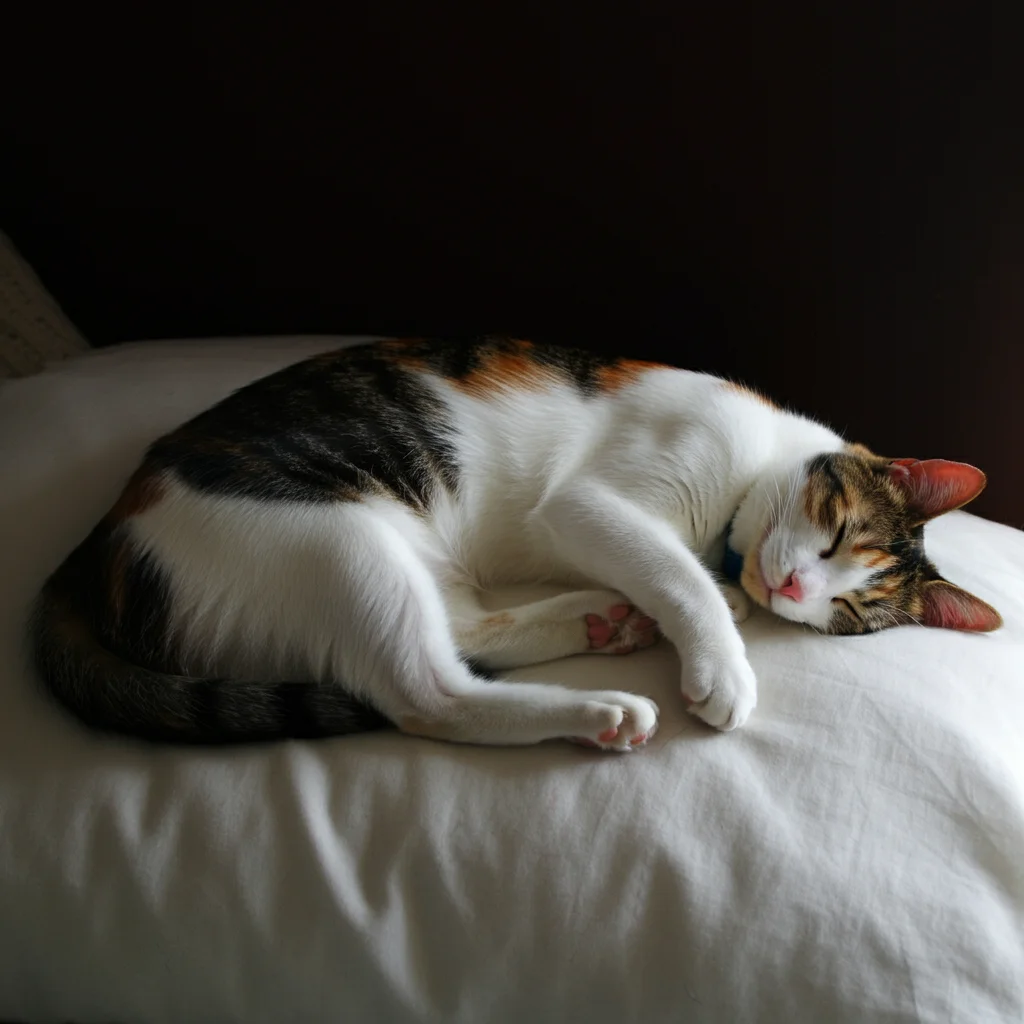
Cats exhibit a remarkable inclination for sleep, surpassing human levels. Interestingly, their sleeping postures convey more than just adorable appearances. For instance, if your cat favors the ‘fox position,’ characterized by curling into a ball, there is an underlying rationale. In the wild, foxes utilize this strategy to retain body heat by wrapping their tails and covering their faces. Likewise, domestic cats employ this tactic for warmth retention.
Cat Waste Fragments
Similar to humans, cats occasionally exhibit dramatic behavior. Their primal instincts prioritize territorial claims, leading to defensive actions when another cat encroaches. However, such interactions can also be benign and exploratory, involving sniffing to familiarize themselves with their surroundings and fellow felines.
Exploring the Reason Behind Cats’ Excessive Sleep Patterns
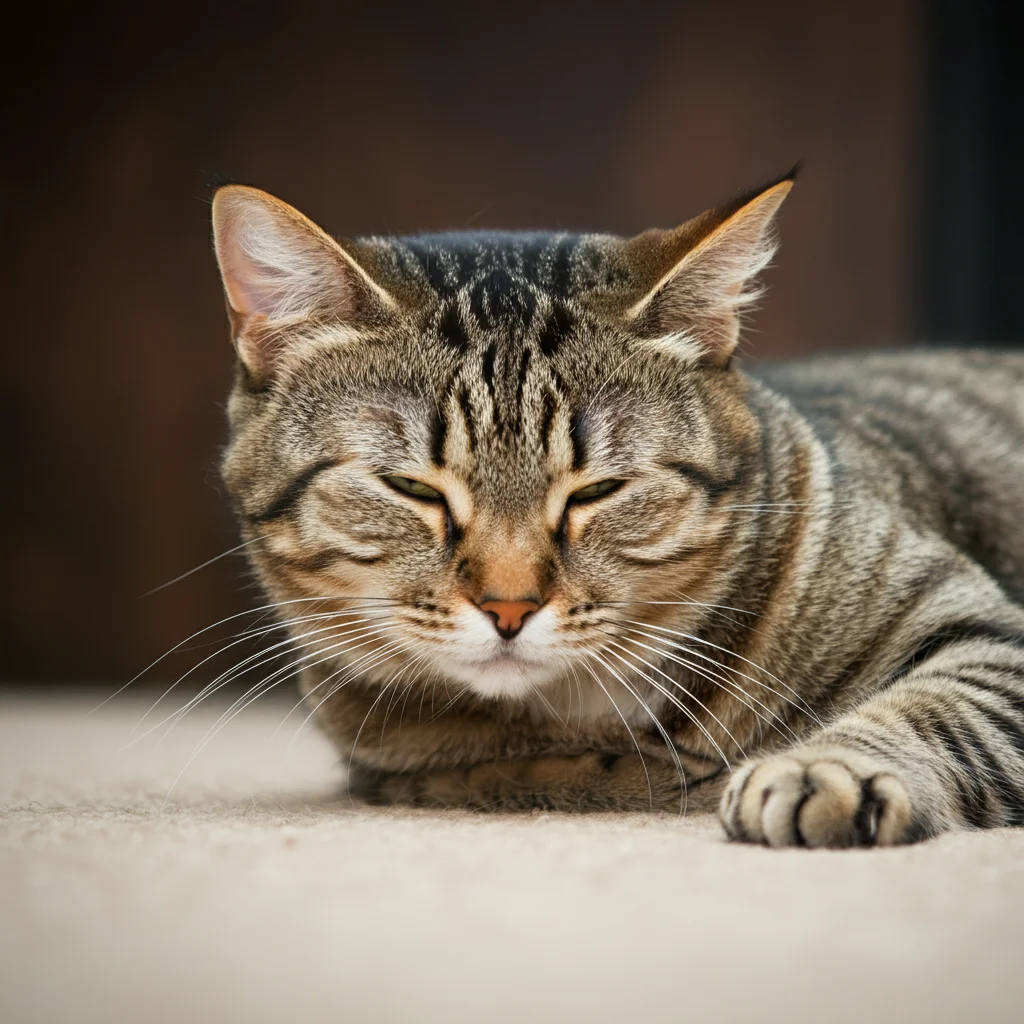
No cause for alarm if your kitten is sleeping throughout the day. Sleep facilitates the release of growth hormones, vital for their developmental needs, which is why young cats seem to sleep incessantly.
Adult cats sleep considerably, conserving energy through dozing, an instinct developed from their wild origins where hunting necessitated energy reserves. If your cat appears overly somnolent, stimulating play may help counteract boredom-induced sleep.
Why Does Your Cat Seem Unresponsive to Commands?
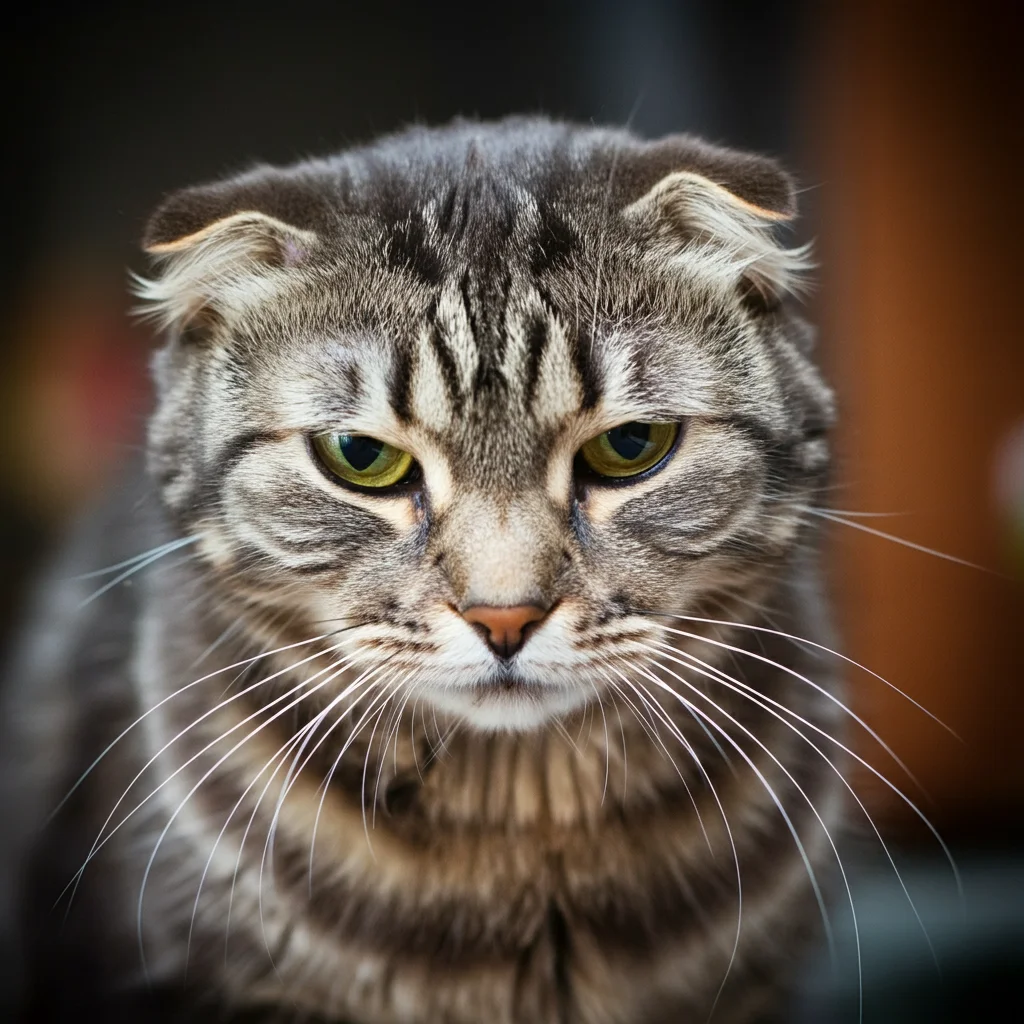
Cats demonstrate remarkable cognitive abilities. They expertly decipher nonverbal cues but do not grasp linguistic meanings. To discipline your cat without causing bewilderment, employ this method. Cats react to emotional intensity rather than specific desires. Consequently, when directing them to avoid counter jumping, firmness in tone is crucial for clear understanding.
What Are the Reasons Behind a Cat’s Purring?
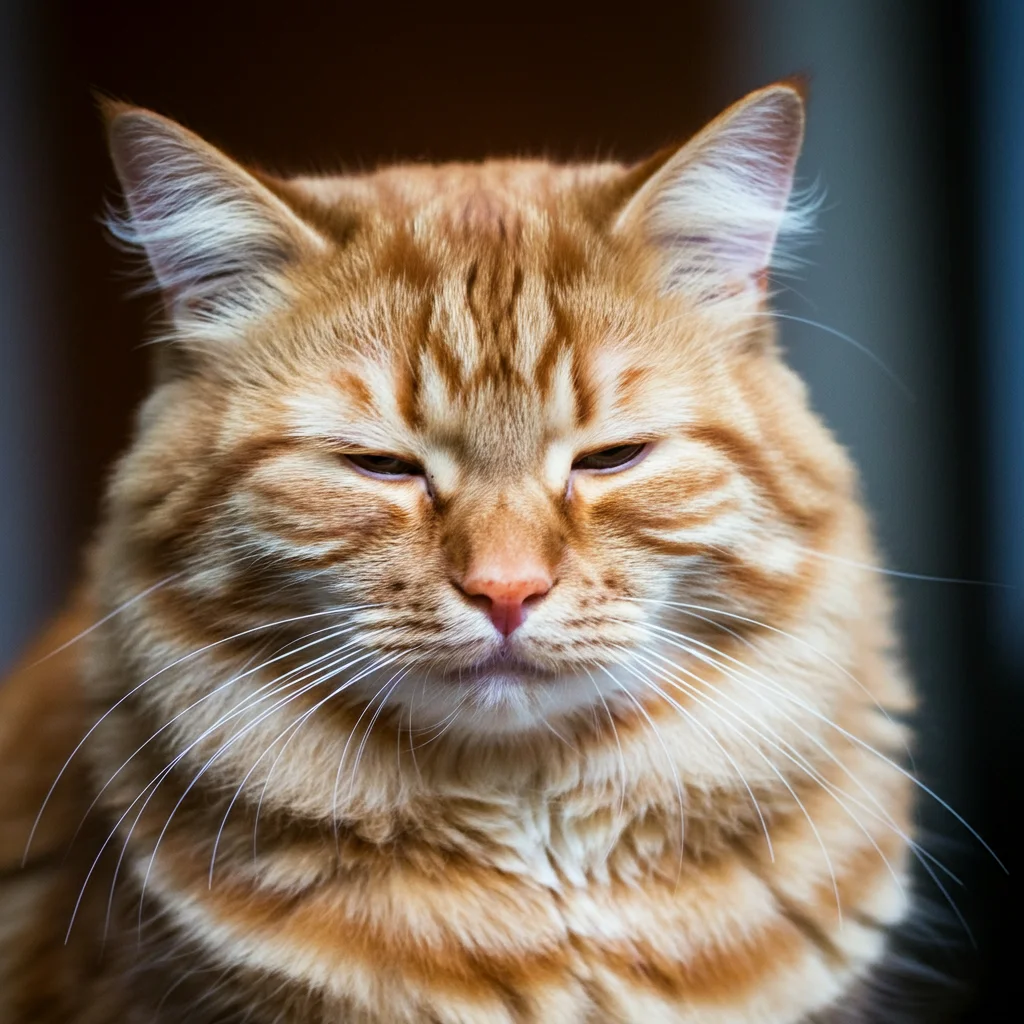
Surprisingly, purring, a ubiquitous cat behavior, remains poorly understood within the scientific community. Despite this knowledge gap, it is widely accepted that purring is a reliable indicator of feline happiness and tranquility.
Cats utilize purring as a communication method, and its implications are multifaceted, encompassing both relaxation and distress. The vibrations produced by purring have a calming effect, particularly during stressful episodes. Similarly, when your cat purrs while nestled against you, it can facilitate a reduction in your worries.
Why Does Your Cat Insist on Following You to the Bathroom?
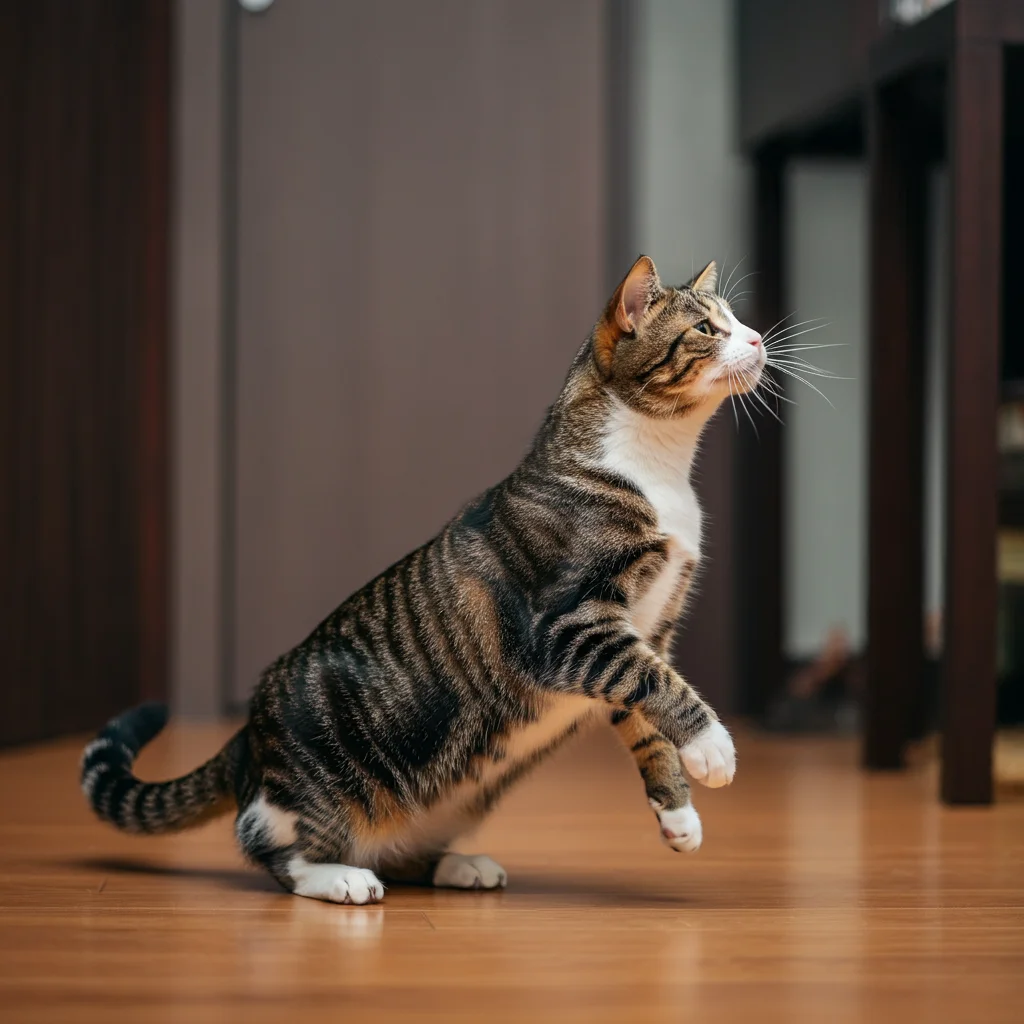
Cats, known for their independence, can paradoxically display clingy behavior, exemplified by their tendency to trail you into the bathroom during private moments.
The precise motivations for this behavior are unknown, but experts believe it may be linked to a desire for comfort. Without their owners, cats may experience vulnerability, prompting them to stay nearby. Conversely, experts think curiosity may drive their interest in exploring areas beyond closed doors.
How Do You Interpret Your Cat’s Tail Wagging Behavior?
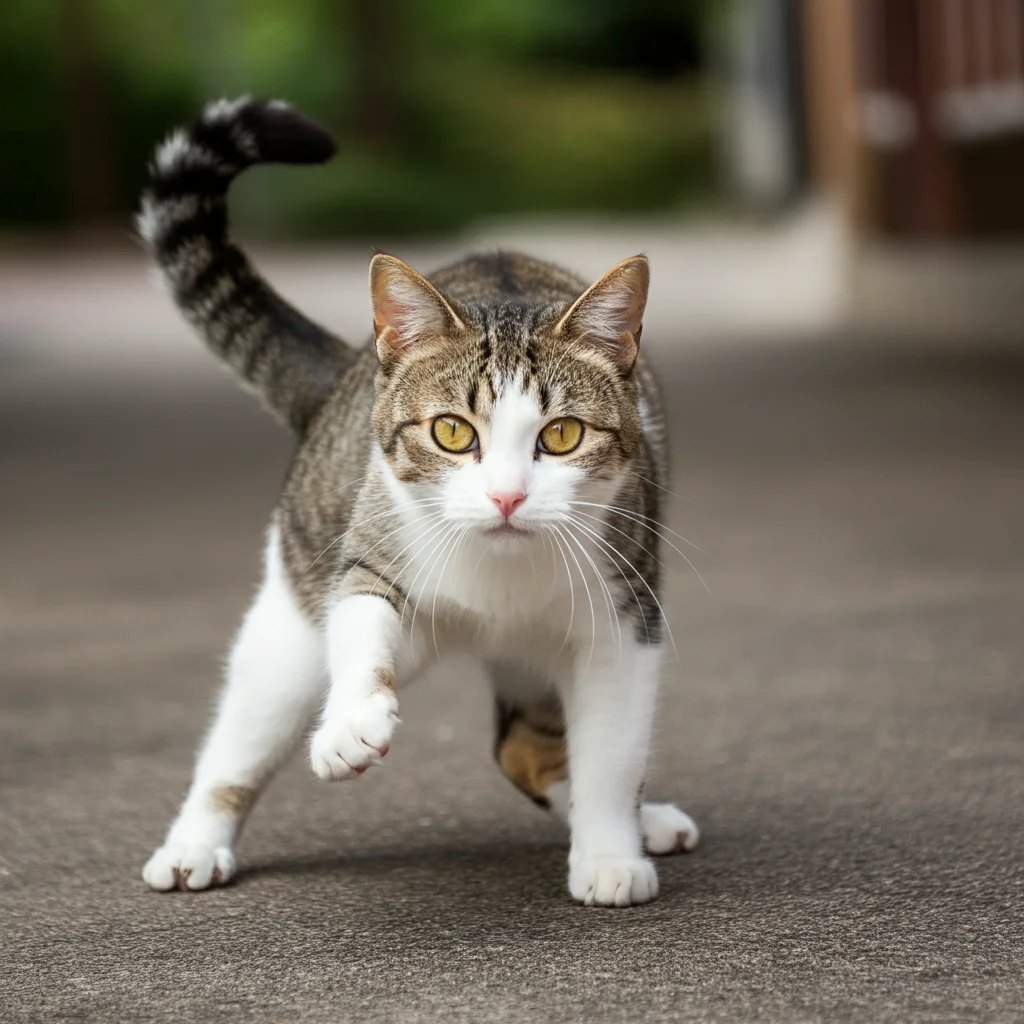
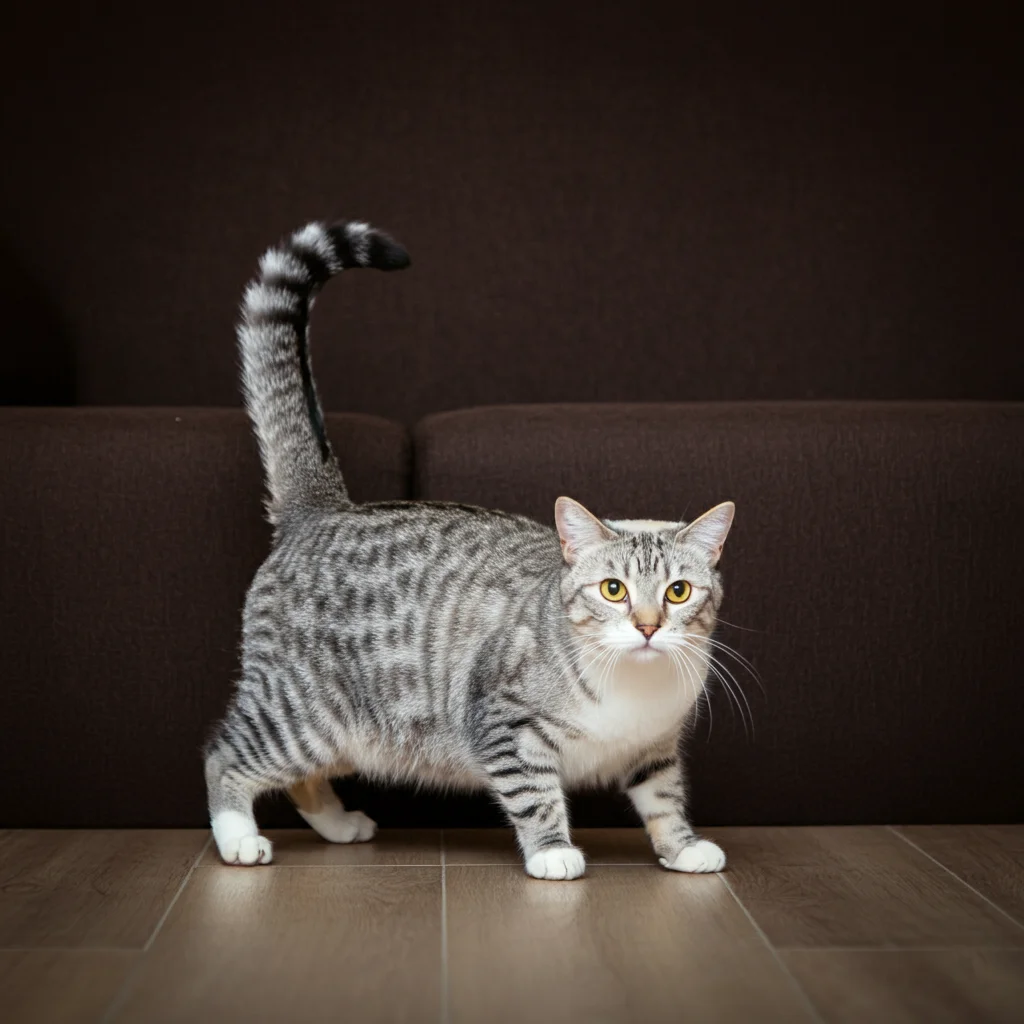
Dogs often display happiness and excitement through a back-and-forth tail wag. However, this behavior in cats usually indicates a preference for isolation.
A swishing motion is an indicator of annoyance, warranting caution and distance. Tail twitching, on the other hand, reveals fascination with nearby activities or surroundings, signaling concentrated attention.
Under What Circumstances Do Cats Hiss?
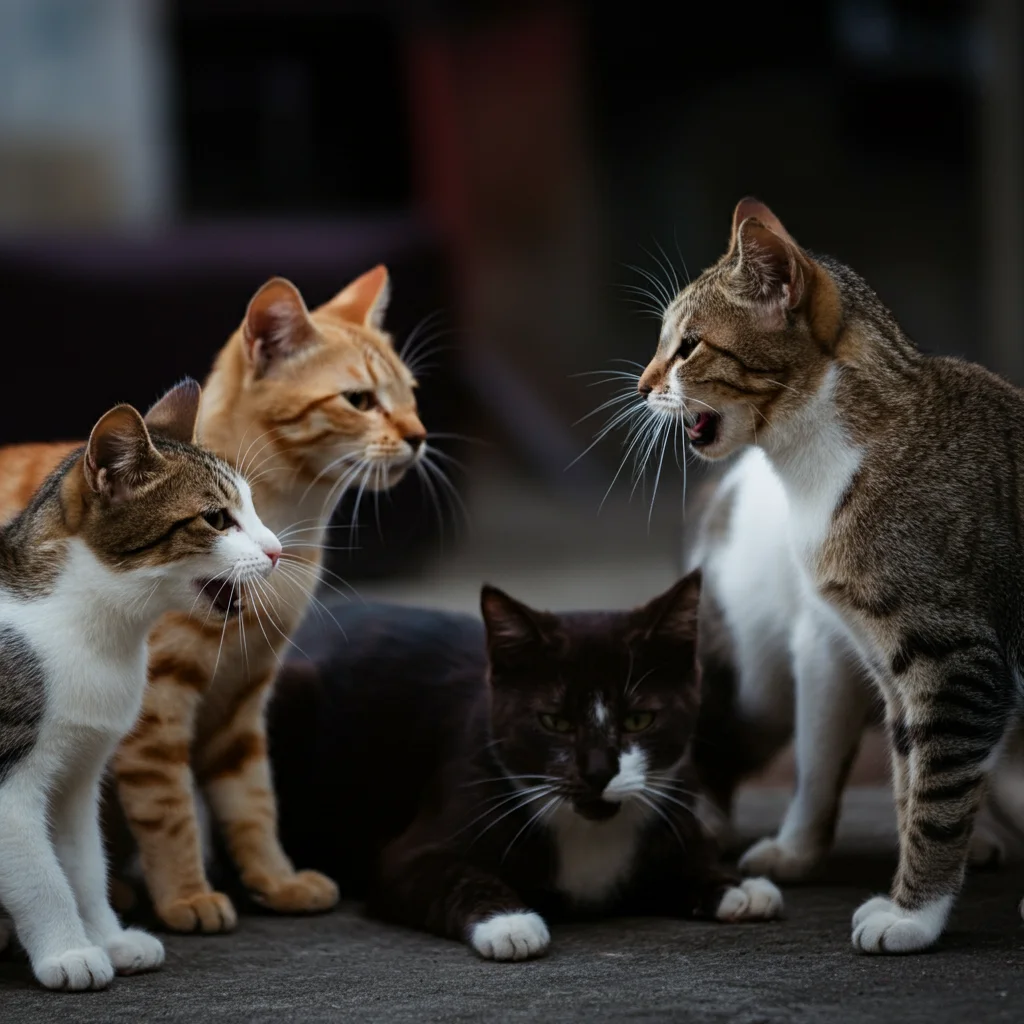
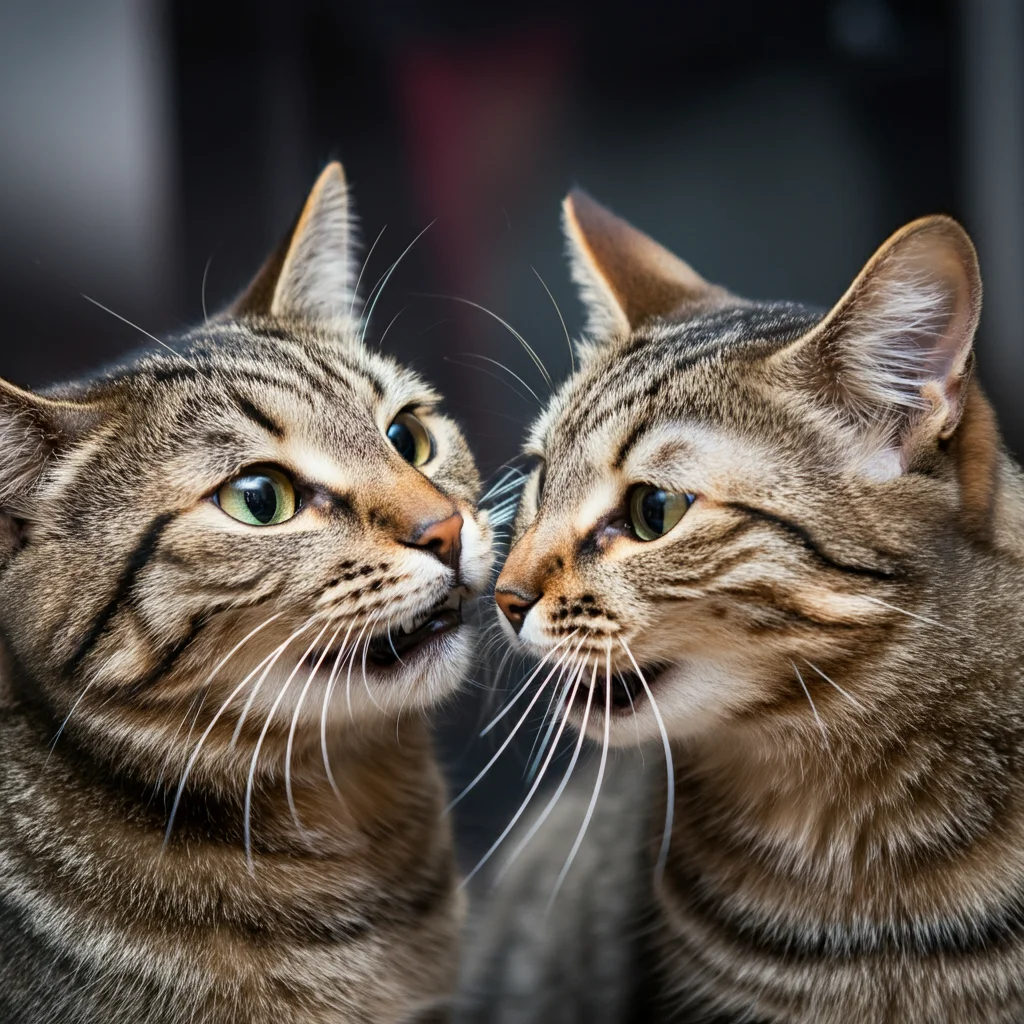
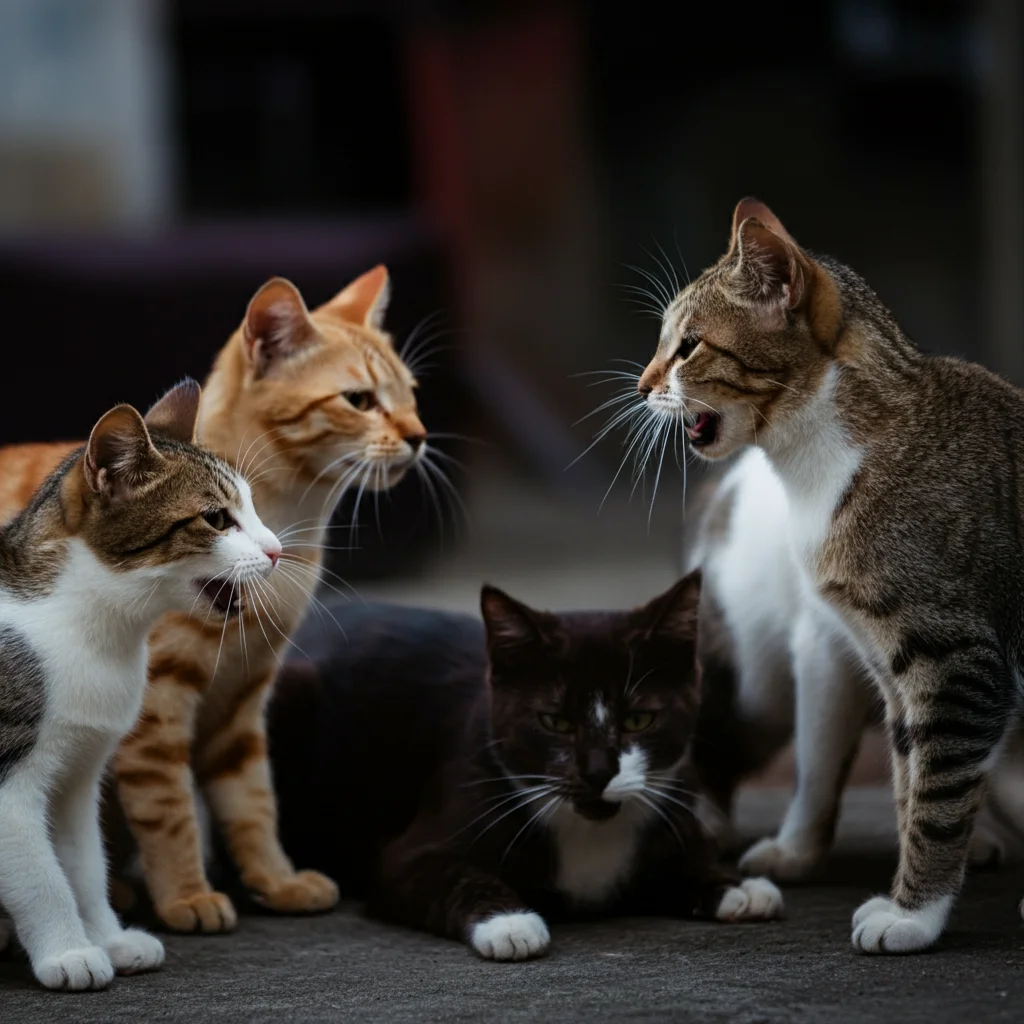
Research suggests that people generally understand that hissing in cats is a sign of unhappiness. This vocalization typically occurs when a cat is feeling angry, irritated, or frightened by its environment, such as the presence of strangers or other animals. The hissing noise serves as a clear indicator that the cat needs time to calm down and prefers minimal human contact.
Understanding the Reason Behind Cats’ Propensity to Knock Things Off Tables
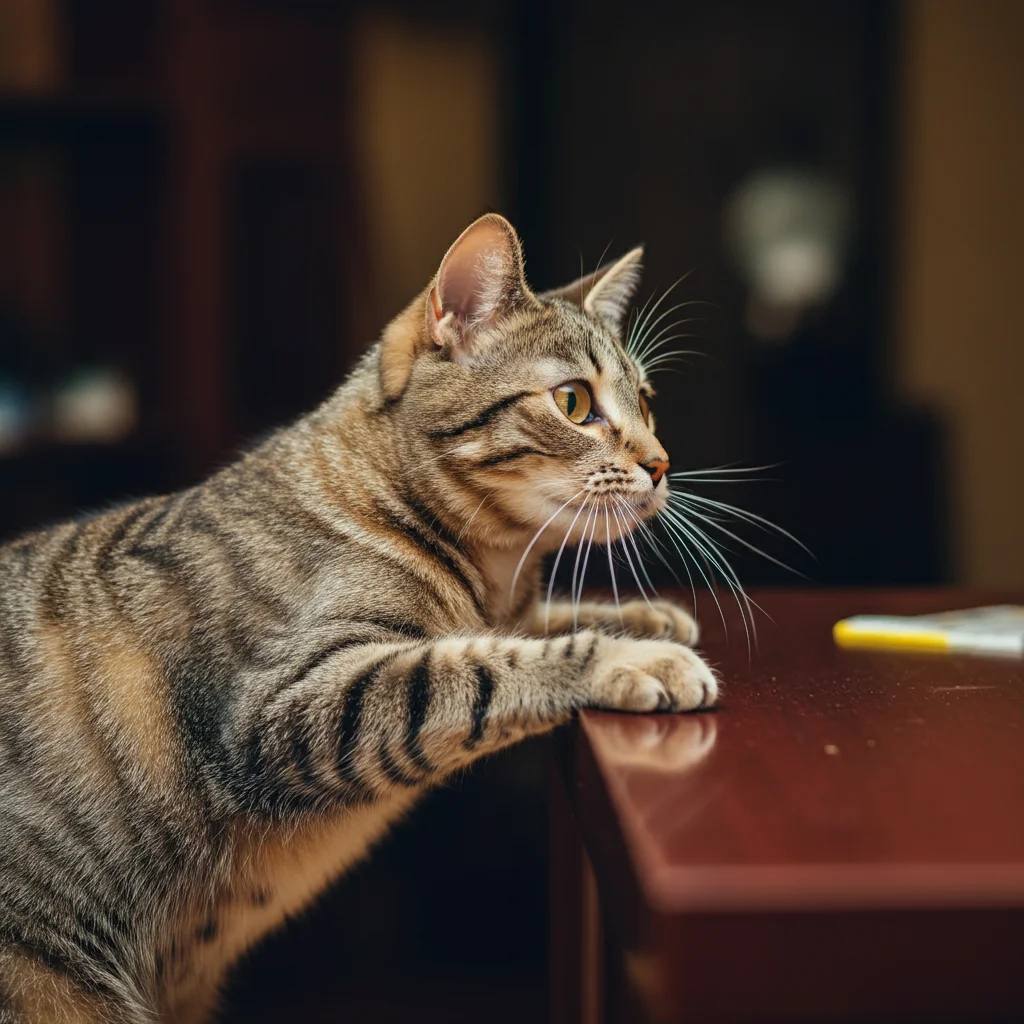
Cat owners are familiar with the phenomenon of their pets suddenly swatting at and knocking over drinks, be it wine, water, or coffee. This behavior is thought to be an expression of cats’ predatory instincts, where they mimic playful interactions with prey. However, their natural curiosity and tendency to get bored may also drive them to seek human interaction.
Observe Where Your Cat Chooses to Litter
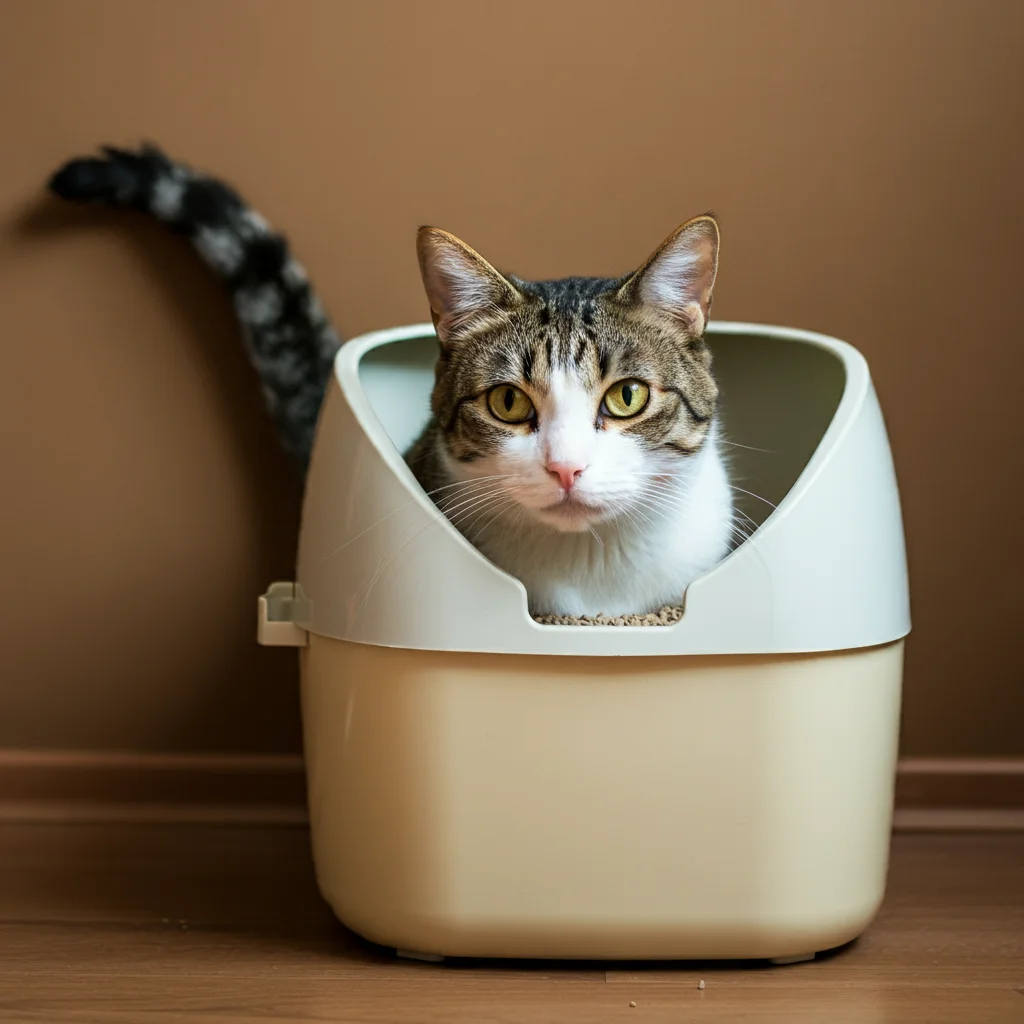
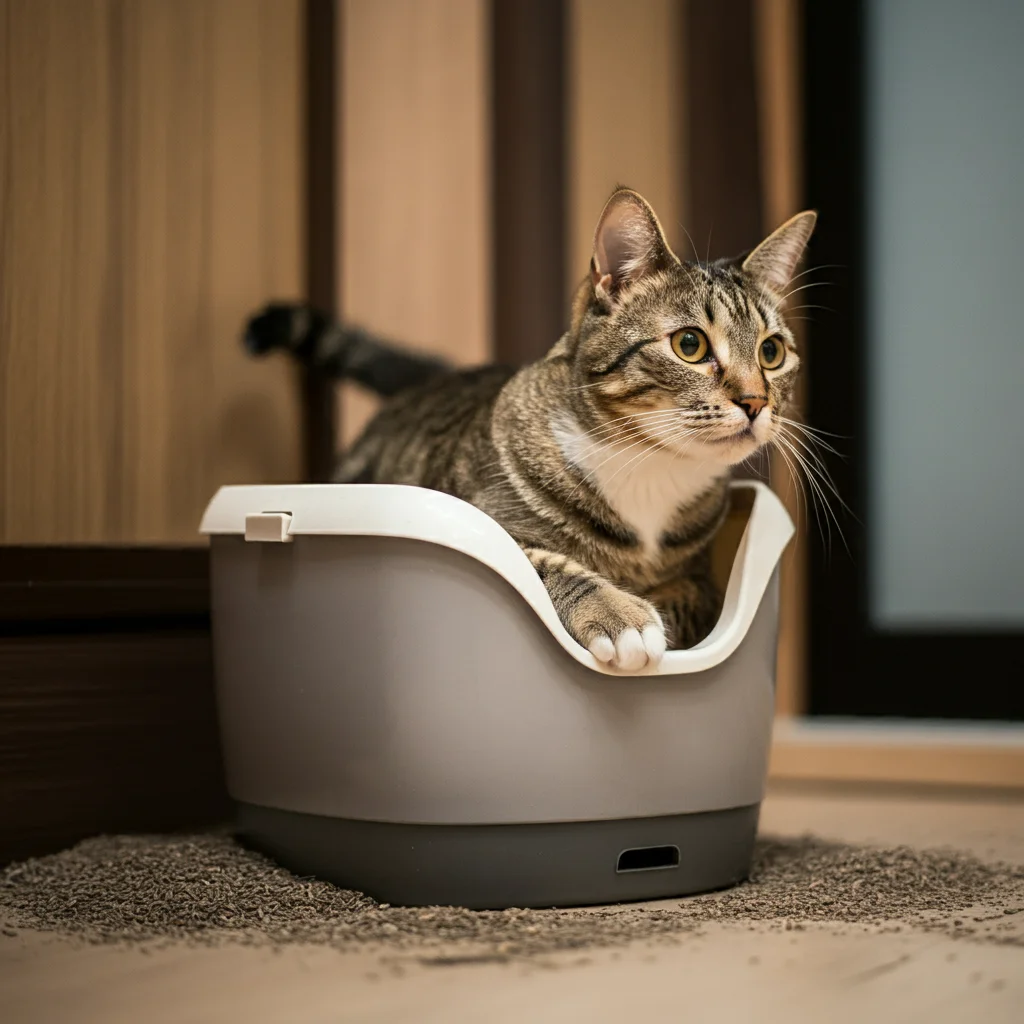
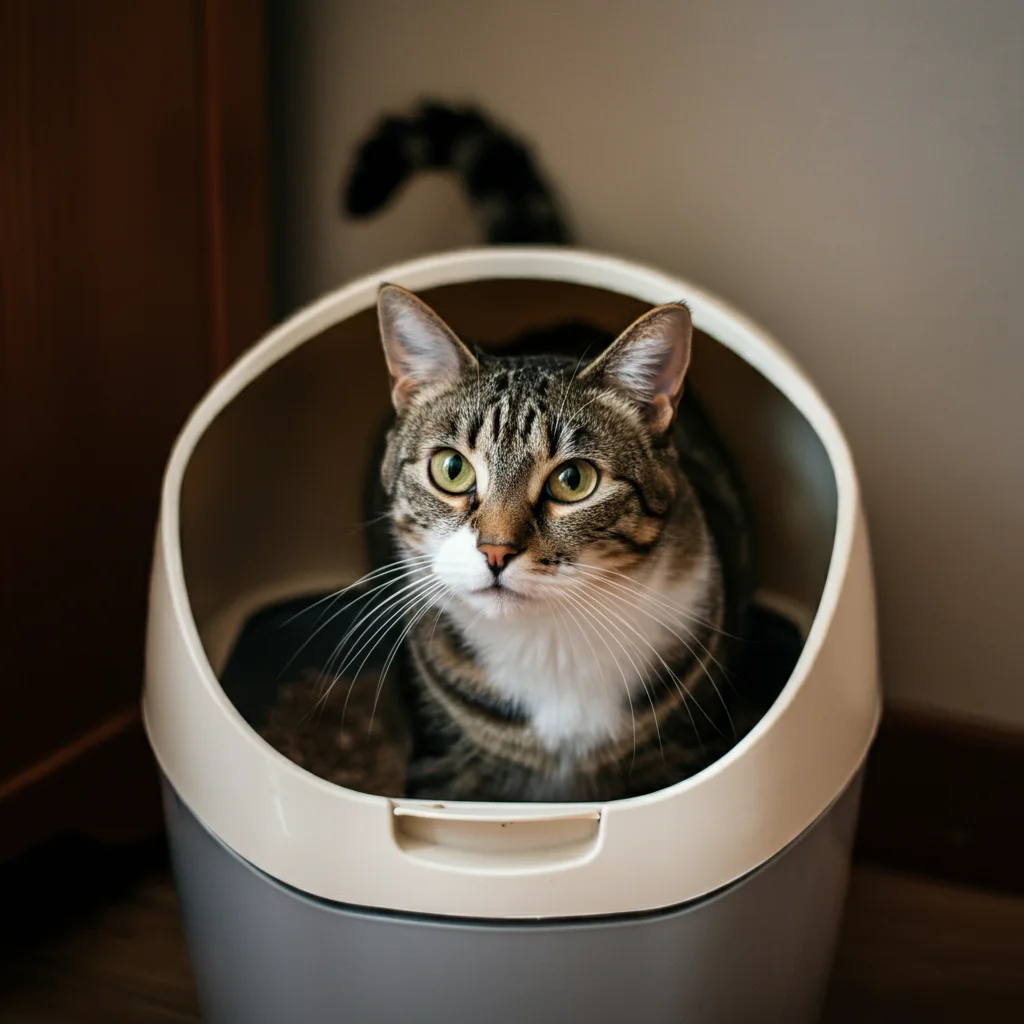
Cats are known for their fastidious nature, consistently utilizing a litter box and covering their waste. However, if they litter outside of the box, it may signal a problem. Hopefully, the issue is merely a preference for a different litter box or location. To troubleshoot, try relocating or replacing the box. If the behavior persists, it is advisable to seek veterinary attention to identify any underlying health issues.
Why Do Cats Find Catnip So Irresistible?
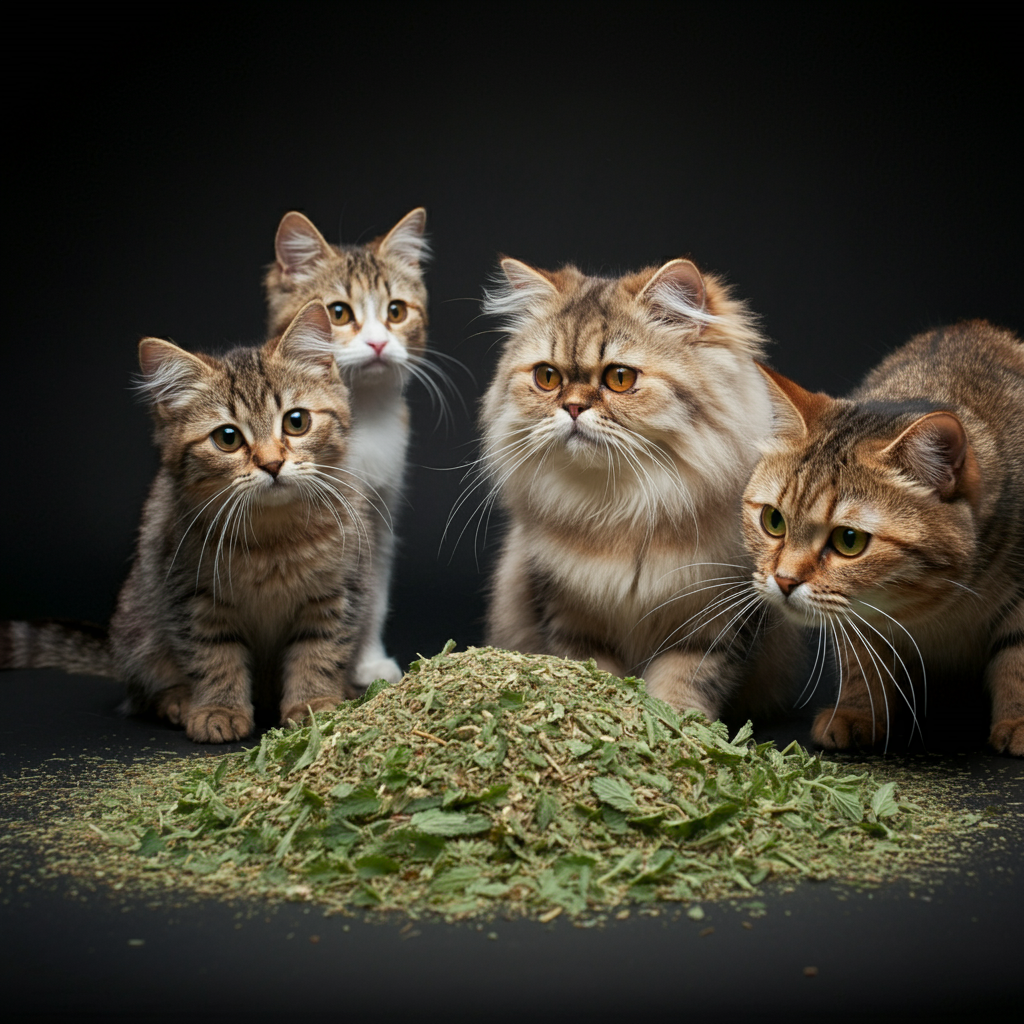
Catnip, characterized by its leafy appearance, reliably induces intense feline excitement. Cats exhibit distinctive rolling motions and vocalize in unusual ways upon encountering the plant. The underlying cause is nepetalactone, an oil within catnip that stimulates the feline sense of smell, yielding intense pleasure and sensory distortion. Consequently, cats experience temporary euphoria. This reaction persists for approximately ten minutes and affects a broad range of felines, from domestic pets to larger species such as lions and tigers. For those wishing to share a social drinking experience with their cat, catnip serves as a safe, functional equivalent.
How Do Cats Communicate Their Love?
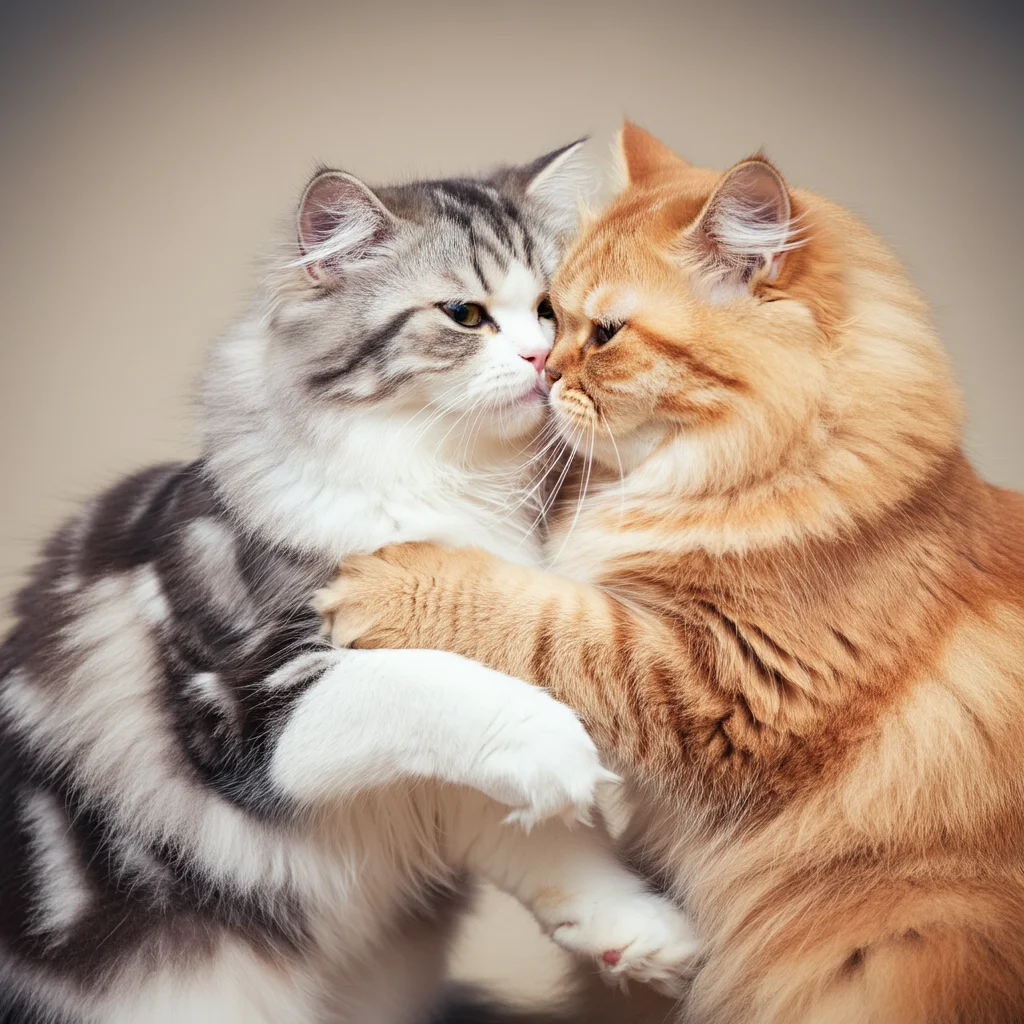
Studies indicate that cats employ eye language to convey emotions. A staring cat likely seeks engagement, but aggressive staring requires avoidance. In contrast, slow blinking expresses feline affection, representing a unique, nonverbal display of fondness.
Why Do Cats Exhibit Nail Biting Behavior?
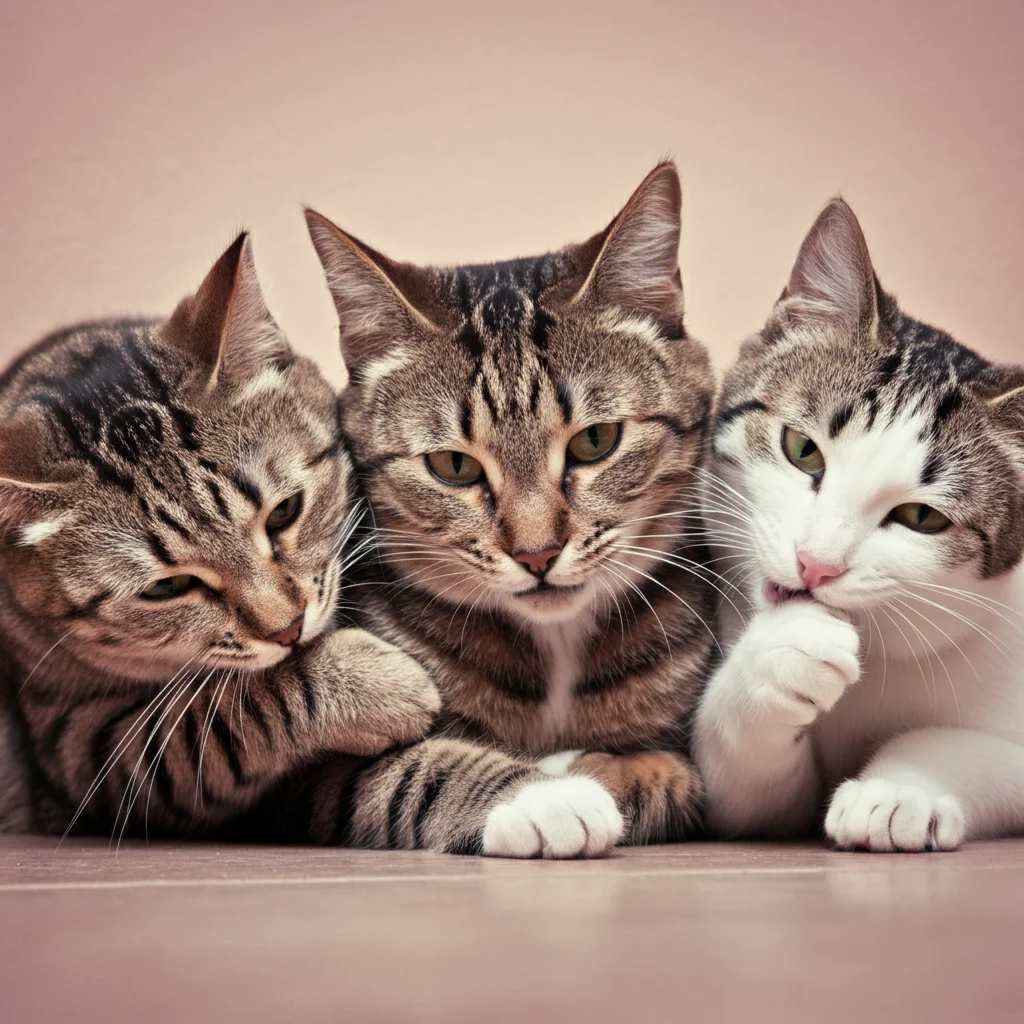
Feline nail biting can be attributed to anxiety, mirroring the habits of humans. Nonetheless, cats may also bite their nails due to boredom or as part of their grooming routine. If this behavior becomes excessive, it may signify an underlying problem, such as a parasitic infection or other health issue prompting anxious nail biting.
What Does It Mean When Your Cat Chooses to Sleep on Your Chest?
A hard day’s work is often alleviated by reclining and discovering your cat has claimed a resting spot on your chest. The sense of solace this provides is widely shared. Your cat’s affinity for sleeping near you stems from feelings of comfort and trust, fostered by your scent, breathing rhythms, and bodily heat. This mutual reassurance is a cherished aspect of the cat-owner relationship.
Managing Your Cat’s Biting Behavior
When your cat bites you, it is essential to recognize that this behavior is not indicative of hatred. Instead, it signifies that your cat is experiencing anger, stress, or a need for attention. Occasionally, biting may be a playful gesture or an attempt to communicate emotional distress. Alternatively, fear may trigger biting as a self-defense mechanism, mirroring instinctual behaviors exhibited in the wild.
Why Are Cats So Furtive?
Felines demonstrate surreptitious movements, traversing the home with unexpected appearances. They swiftly maneuver around corners, briefly exposing themselves from behind furnishings before abruptly reappearing. Despite domestication, cats maintain a strong predatory drive, even without household prey. This indoor behavior is instinctual, honing their skills for external environments. Additionally, they employ this stealthy behavior to forage for residual food scattered throughout the residence.
Why Does Your Cat Engage in Grass Snacking?
Cats typically thrive on gourmet tuna, but occasionally they crave greens. Consequently, your cat may occasionally graze on grass. Although cats enjoy eating grass, they are unable to digest it, leading to regurgitation, which can be beneficial as it cleanses their system. When experiencing digestive issues, they may intentionally consume grass. Notably, grass juices contain folic acid, an essential vitamin for feline health, rendering this behavior harmless.
When Does Your Cat Paw at Its Water?
Cats demonstrate distinct personalities and varied responses to water. While a significant number display distaste, others exhibit curiosity and enjoyment, frequently manifested through water bowl play. Additionally, some cats prefer the taste and sensation of moving water, likely influenced by ancestral instincts favoring the freshness of river water. This results in splashing behaviors that mimic spring water dynamics, primarily motivated by playful impulses.
Upon Hearing Your Cat’s Charming Meow
The ‘meow’ sound produced by cats represents their primary method of communication with humans. A gentle, melodic meow functions as their personalized greeting. Upon hearing this charming vocalization, it is essential to engage with your cat, as this is their attempt to solicit attention. This moment presents an opportunity to offer affection, such as gentle petting or a soothing head rub, which typically elicits a joyful response and enthusiastic display of affection from your feline companion.
When Does Your Cat’s Vocalization Become Excessively Loud?
The vocalizations of a cat convey various messages, with volume providing valuable context. A gentle meow is generally a greeting, whereas a loud meow usually signifies a specific need, such as nourishment. Cats also meow when requiring aid, possibly due to entrapment or confinement, necessitating liberation from the house. Continuous meowing may indicate poor health, justifying a consultation with a veterinarian.
Be Cautious of Head Contact with Walls
You may have observed a peculiar feline behavior where cats randomly press their heads against walls or other hard surfaces, often accompanied by unusual vocalizations. This action is not typical and warrants concern, as it may indicate nervous system damage due to trauma, tumors, or poisoning. Immediate veterinary attention is recommended.
Why Do Cats Assume a Bipedal Stance?
The act of your cat standing on its hind legs is an exemplar of adaptive evolution. This stance allows them to appear more formidable, thus warding off potential threats. While domestic environments lack natural predators, cats may nonetheless feel threatened and exhibit this behavior. They naturally assume this posture when defensive or, alternatively, when reaching for treats. Neither scenario necessitates concern, though cautious reserve is advisable.
Preventing Damage When Your Cat Scratches Excessively
Life’s unpredictability notwithstanding, one constant remains: cats’ innate love of scratching. They frequently eschew scratching posts in favor of damaging new sofas. This behavior is rooted in their natural need to remove the dead outer layer of their claws, which affords relief and enables territorial marking through scent. To safeguard your sofa, provide a suitable scratching post and encourage its use.
What Causes Your Cat’s Frequent Stretching?
Cats exhibit an exceptional fondness for stretching, undertaking this activity regularly. The benefits of stretching for felines include improved blood flow, increased blood pressure, and the elimination of muscular toxins. While these advantages are significant, cats primarily stretch due to the inherent pleasure it provides. As frequent nappers, cats often stretch post-slumber. Importantly, stretching in cats is a sign of comfort and security, suggesting that your care is meeting their needs.
How Do Cats Manage to Land on Their Feet?
Cats’ propensity to land on their feet stems from their distinctive spinal flexibility, courtesy of extra vertebrae. Additionally, their acute sense of balance, slender physique, and thick coat enable effortless landings. This capacity to land on all fours is an adaptive trait, evident even in young kittens, typically from six weeks old.
How Do Cats Initiate Greetings?
Research suggests that cats often display affection through gentle facial contact, typically indicating trust and fondness. By engaging in this head-butting behavior, or
When Your Feline Raises Its Rear End
Periodically, cats will suddenly elevate their hindquarters. This behavior often occurs while being petted, but it does not signify a desire to cease. Rather, it indicates the opposite. This action demonstrates that they are deriving pleasure from the attention and wish to continue receiving it. The gesture signifies that you have successfully located a sensitive area and they desire further affection. When your cat exhibits this behavior, rest assured that you are effectively providing affection.
Why Your Cat Sleeps in a Tight Ball
Ever noticed your cat curling up into a tight ball? It’s not just cute—it’s a survival tactic. This position keeps them warm and snug. Plus, it shields their belly and vital organs, making them feel safe.
In the wild, this cozy ball protects them from the cold and potential predators. Even indoors, that instinct remains. So if you see your cat curled up in a tight ball, even with a warm bed nearby, it’s just their natural behavior kicking in.
Why Your Cat Bounces Off the Walls
Ever seen your cat dash from room to room or leap off furniture? That’s their way of burning energy. Add a sprinkle of catnip, and you’ve got a feline frenzy on your hands!
But beware—these antics can lead to injuries. Make your home cat-proof. Engage them with games and toys to channel their energy safely. Your playful kitty will thank you!
Why Your Cat Flashes Its Rear
Ever had a feline friend stick its butt right in your face? Gross, but oh so flattering! Your cat is rolling out the welcome mat for you. In the feline world, greeting involves a full-body rub, ending with a signature butt-to-butt finale. Your cat is essentially saying, “Hey, you’re one of us!”
Why Cats Bury Their Business
Cats are cleanliness champions, meticulously covering their tracks in the litter box. This behavior is a lesson from their mothers, rooted in survival instincts. Wild cats hide their waste to avoid attracting predators. If your kitty leaves its poop uncovered, it might be announcing its presence or protesting a cramped, dirty litter box.
Why Your Cat ‘Buries’ its Food
Ever seen your cat pawing around its food bowl? It’s not redecorating. This behavior mirrors their instinctual trait to conceal food from potential threats. It’s a survival tactic, learned from their mothers, that says, “This is mine, stay away!”
When Cats Chew Your Hair
Cats groom more than themselves—they might just give your hair a nibble. This quirky grooming habit is their way of sharing scents and marking you as part of their clan. If you reward them by talking or moving closer, expect more hair grooming adventures!
Why Your Cat Licks You
Licking is love, pure and simple. Cats lick to show affection, mark territory, and say, “You’re in my family now.” But beware: excessive licking might signal stress or anxiety in your furry friend.
When Cats Wrap Their Tails Around You
Forget handshakes—cats show affection by wrapping their tails around you. It’s their way of saying, “You’re special,” while sneakily marking you with their scent.
When Your Cat Boops You with Its Nose
A nose boop from your cat is a delightful greeting. Cats have scent glands in their face, and rubbing against you is their way of claiming territory. It’s called “bunting,” and it’s a calming, friendly gesture.
When Your Cat Goes Wide-Eyed
Those big, adorable eyes aren’t just cute—they’re a communication tool. Wide eyes often signal excitement, fear, or intense interest. It’s playtime, so grab a laser pointer!
When Cats Hold Their Tails Low
A low-hanging tail spells trouble. It indicates your cat is feeling scared, anxious, or possibly aggressive. If the tail is tucked between the legs, your kitty might be scared or in pain.
What Love Bites Really Mean
When your cat gives you a playful nibble, it’s expressing affection. These “love bites” are gentle and harmless, unlike aggressive biting. But they can also signal, “I’ve had enough petting for now.”
When Your Cat’s Tail Stands Tall
A straight-up tail means your cat is feeling social, confident, and ready for interaction. It’s like a feline high-five, so get ready for some quality bonding time.
Why Your Cat Opens Its Mouth
When your cat stands with its mouth wide open, it’s not being rude. It’s engaging in “flehmen” behavior, using its mouth to analyze intriguing scents. It’s a hilarious, yet functional, expression.
When Cats Dive Off Furniture
Cats are natural-born jumpers! Leaping off furniture is a sign of excitement and playful instincts. They’re channeling their wild ancestors, who climbed and jumped to survive.
What Are the Zoomies?
Zoomies are those wild, high-speed dashes around the house. They’re instinctual bursts of energy, often linked to sleep patterns, hunting instincts, and even bathroom breaks. Let your cat embrace the chaos.
Why Your Cat Hops Around
A cute little hop from your cat is a throwback to kittenhood bonding. It’s an adorable way for cats to connect with you, mimicking the interaction with their mother.
Why Your Cat Stays Up All Night
If your cat’s keeping you awake with nighttime antics, welcome to the world of “night crazies.” Cats are nocturnal by nature, and this behavior can also indicate boredom or hunger.
When Your Cat Blocks the Door
Your independent kitty might surprise you by blocking your exit. This could be a sign of separation anxiety. Keep your cat entertained while you’re away and maintain a consistent routine.
Why Your Cat Drools
Drooling can signal relaxation when your cat’s kneading or purring. But if it’s constant, a trip to the vet might be in order—stress or health issues could be at play.
Why Cats Prefer the Faucet
Cats love running water! It’s an instinctual preference linked to cleaner, safer drinking sources in the wild. Consider a pet fountain to quench their thirst for freshness.
When Your Cat Chatters
Chattering cats are a delight to watch. This sound often means they’ve spotted prey, mixing excitement with frustration. It’s just one of the many quirky noises cats make.
Why Your Cat Kneads
Kneading is your cat’s way of showing love and relaxation. This instinctual motion harks back to kittenhood when they kneaded their mother’s belly for milk.
Why Cats Love Boxes
To a cat, a box is a fortress. It’s a secure, warm space that offers safety and stress relief. Inside a box, your cat is hidden yet observant—it’s their happy place.
When Your Cat Imitates a Baby
Does your cat meow like a baby? Cats can mimic the pitch of an infant’s cry to grab your attention and communicate their needs. It’s their clever way of getting you to listen.
Why Cats Turn Into a Cat Loaf
Tucking their paws and tail beneath them, cats form the cozy “cat loaf” to stay warm and feel secure. It’s a relaxed pose that says, “I’m content and not on high alert.”
Why Your Cat Closes Its Eyes When You Pet It
A cat closing its eyes while you pet it is the ultimate sign of trust and comfort. Your cat feels safe and relaxed, and a slow blink is their version of a loving gaze.
Why Cats Are Extra Affectionate in the Morning
Morning snuggles aren’t just about breakfast. Cats are relieved their human made it through the night, protecting their favorite person while they slept. So much for the myth of aloofness!
